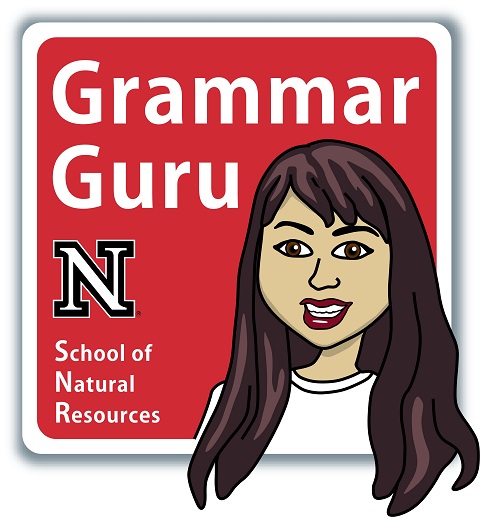
Mekita Rivas, SNR communications and project associate, publishes a biweekly feature called "Grammar Guru."
Every other week, the Grammar Guru will share writing tips to help make your work as polished as possible. Some of these tips may address common spelling errors, while others will examine the many nuances of the English language.
Grammar Guru Tip #2
Time. We never seem to have enough of it, do we? It tends to fly by when we're enjoying ourselves and inch along when we just wish the day would be over already. But we all need to reference it, so here's how to do so correctly.
Two periods are used. It is 7 a.m., not 7 am.
For morning times, use a.m. For afternoon and evening times, use p.m.
Singular numbers are used for the sake of succinctness. Only use the full clock time if it cannot be denoted with a singular number.
For example, it is 7 a.m., not 7:00 a.m.
It is 7:30 a.m., not 7:30 am.
Remember: Avoid redundancies like "10 a.m. in the morning" or "8 p.m. at night."
Example:
The conference is set to begin at 9 a.m. Appetizers and drinks will be served beginning at 12:30 p.m.
Need some grammar guidance? The UNL Style Guide (http://unlcms.unl.edu/ucomm/styleguide/) is a great resource for all university employees. If you have writing questions that the style guide doesn't answer, feel free to email the Grammar Guru at mrivas@unl.edu.